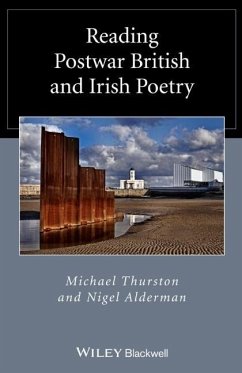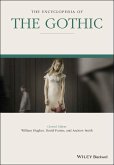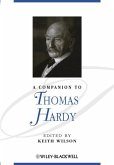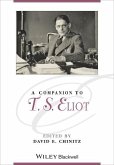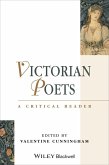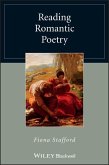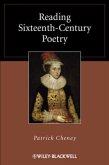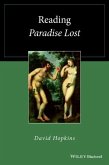Combining detailed explorations of both mainstream andexperimental poets with a clear historical and literary overview, Reading Postwar British and Irish Poetry offers readers atall levels an ideal guide to the rich body of poetic workspublished in Britain and Ireland over the lasthalf-century.
Features detailed discussions of individual poems that arewidely available in anthologies and selected poems volumes
Pays explicit attention to how to read the poems,focusing on language and form and the institutional conditions ofliterary possibility in which poets worked
Includes poets of all types and styles from throughout thepost-war period, including canonical and mainstream poets alongsideexperimental poets, women, and poets of color
Features detailed discussions of individual poems that arewidely available in anthologies and selected poems volumes
Pays explicit attention to how to read the poems,focusing on language and form and the institutional conditions ofliterary possibility in which poets worked
Includes poets of all types and styles from throughout thepost-war period, including canonical and mainstream poets alongsideexperimental poets, women, and poets of color
"In this lively, inviting study, Alderman and Thurston provide an invaluable introduction to the multiple varieties of poetry to have emerged from Britain, Ireland, and the disintegrating British Empire after World War II. Impressively learned yet free of academic jargon, this survey offers a lucid, evenhanded overview of competing trends in postwar poetry, together with strikingly perceptive close readings of individual poems. It will appeal not only to students and teachers but to everyone with an interest in modern poetry."
--Maud Ellman, University of Chicago
"This book is the introduction to postwar poetry that we have needed - patient, thoughtful, deeply attuned to the long traditions that underwrite the poetry of recent decades and to the complex historical pressures that have given us surprising new forms and materials along the way. Alderman and Thurston are not interested in oversimplifying or merely summarizing, but rather in catching the inventive range of ways in which poems make or suggest, resist or provoke meanings, giving us the language to read them."
--Dan Blanton, University of California, Berkeley
"Alderman and Thurston pack this volume with the hard-earned insights of gifted readers who are also gifted teachers. Their innovative shaping of the postwar field distills the very best of current critical thinking for students while their ambitious blending of historical concepts and formal analysis sets the table afresh for more experienced readers. Put this book into the hands of twenty-first-century college students: they will discover how so many great, thorny poems can make beautiful sense of the past and the present."
--Jed Esty, University of Pennsylvania
"This is the inclusive account of the recent history of British poetry that we have been waiting for. The authors recognise the social diversity of the poets, the complexity of social and political history that has informed their work, and the validity of a wide range of different aesthetic strategies. In a highly readable style they judiciously discuss both individual poems and the social formations that have helped poetry flourish. This book will be immensely useful to students and teachers of modern British poetry, while its liveliness will appeal to anyone interested in learning more about a vital and exciting period in the history of poetry."
--Peter Middleton
--Maud Ellman, University of Chicago
"This book is the introduction to postwar poetry that we have needed - patient, thoughtful, deeply attuned to the long traditions that underwrite the poetry of recent decades and to the complex historical pressures that have given us surprising new forms and materials along the way. Alderman and Thurston are not interested in oversimplifying or merely summarizing, but rather in catching the inventive range of ways in which poems make or suggest, resist or provoke meanings, giving us the language to read them."
--Dan Blanton, University of California, Berkeley
"Alderman and Thurston pack this volume with the hard-earned insights of gifted readers who are also gifted teachers. Their innovative shaping of the postwar field distills the very best of current critical thinking for students while their ambitious blending of historical concepts and formal analysis sets the table afresh for more experienced readers. Put this book into the hands of twenty-first-century college students: they will discover how so many great, thorny poems can make beautiful sense of the past and the present."
--Jed Esty, University of Pennsylvania
"This is the inclusive account of the recent history of British poetry that we have been waiting for. The authors recognise the social diversity of the poets, the complexity of social and political history that has informed their work, and the validity of a wide range of different aesthetic strategies. In a highly readable style they judiciously discuss both individual poems and the social formations that have helped poetry flourish. This book will be immensely useful to students and teachers of modern British poetry, while its liveliness will appeal to anyone interested in learning more about a vital and exciting period in the history of poetry."
--Peter Middleton

